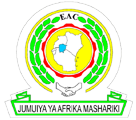Complaint
- Complaint number
- NTB-000-393
- NTB Type
- 2.8. Lengthy and costly customs clearance procedures
- Complaint
-
- 418 containers (+/- 600 TEU which accounts for about 100% market share for transit business according to DP World statistics) between Maputo and the Hinterland (mainly Zimbabwe) under the Through Bill of Lading product were moved from April to December.
- The average dwell time (from discharge move to the day when the containers leave the port) is approximately 31 days
- The port grants us 10 days freetime for storage, i.e. companies pay on average 21 days storage at a rate of USD 14/day (21*14*600 = USD 176,400 in storage)
- Under normal circumstances companies would also be liable for the equipment cost to the shipping line in the form of demurrage and detention. Currently for transit USD 50 per day after day 30 (it varies slightly from shipping line to shipping line). If we add another 7 days transit to the dwell time, plus 5 days for clearance/delivery in Zimbabwe and 7 days empty return of the container into port we look at a total equipment turnaround time of 50 days from discharge to empty return, i.e. 20 days of DMR/DET or in monetary terms USD 600,000 for 600 containers only over a period of less than 12 months.
- This means that Mozambique adds USD 1,294 per TEU of extra costs on the Maputo corridor due. The bill is picked up by the end consumer in the Hinterland of course as most of the costs are passed on.
The underlying problem is DIPLOMA 10/2002 30.01. (attached is the English translation) which states that rail is NOT a bonded mode of transport (Article 1 - Conveying unit c, Railroad carriages or wagons) and that one needs to give customs a guarantee 'determined on the risk offered for the revenue' (Article 4.1) for cargo in transit (Article 4.2a). The legislation then gives two options to register a guarantee with customs: 1. Isolated Guarantee (Article 6) and 2. Global Guarantee (Article 7). For container transit on a large scale only a global guarantee is an option as it allows for the ongoing movement of cargo without registering individual guarantees for each container. The maximum 'valor aduaneiro' (customs value) is USD 2,000,000 for a USD 150,000 USD deposit/bank guarantee/insurance bond (Article 7.1), but the general director of customs can increase the ceiling 'by application of the interested, taking into account the risk involved for the revenue, resulting from the customs record of the interested, ...' (Article 7.2).
Customs interprets the risk value ('valor aduaneiro', risk offered to the revenue) as the cargo's CIF value. We inquired several times what the logic behind this is as the CIF value is far from the actual risk for revenue. It must be duties and VAT. Customs refuses and refers to some other legislation or directive which clearly indicates that customs risk value is CIF value.
Attempts to increase the ceiling of the bond to move more than USD 2,000,000 of CIF value under a global guarantee were rejected based on the grounds that it is not possible for to do this for ongoing container traffic with several consignees in the Hinterland.
We also attempted to get rail exempted from the bond requirement based on the low risk. This was also rejected several times albeit CFM agree that rail should be exempted from bond. Customs couldn’t remember though that they ever agreed to this.
Further, they deduct the CIF value from the bond balance once the clearance process starts until the documents are returned from the border. This ties the value up for a period of about 60 days and does extend the period of which containers are considered to be under risk unnecessarily.
The current procedure basically stops transit movements for imports on a large scale (read: modern container traffic). - Status note
-
At the 3rd meeting the Tripartite NTBs Focal Points and NMC Chairs held in Dar -es-Salaam on 19-20 April 2012,, Mozambique reported following progress towards resolution of the NTB:
a) That the legislation regarding the transit of cargo through Mozambique was under revision and it was
expected that a new legislation would come into force by end of June 2012.
b) That the signal windows electronic system was being implemented in Maputo port. It had been tested in
the Beira and Nacala ports, which should be fully operational by end of June.
c) This system would also have a module to control the bank guarantees which was expected to be released
as soon as the cargo crosses the border.
A tracking system woul be implemented shortly to improve the control of the cargo.
The meeting accepted Mozambique submission too consider the NTB resolved. - Progress update note
-
On 27 March 2012, Mozambique Focal Point reported following progress towards resolution of the NTB:
a) The legislation regarding the transit of cargo through Mozambique is under revision and it is expected that a new legislation comes in to force in two months’ time. It will take into account all the previous complaints;
b) The signal windows electronic system is being implemented in Maputo port. It has been tested in the Beira and Nacala ports, which should be fully operational by end of June.
c) This system will have also a module to control the bank guarantees which is expected to be released as soon as the cargo crosses the border.
A tracking system will be implemented shortly to improve the control of the cargo. - Policy or regulatory NTB
- Yes
- Location
- Mozambique: Maputo Port (Seaport)
- Reporting Country or Region
- Mozambique
- Country specific trade issue
- No
- Date of incident
- 2011-02-14
- Status
- Resolved
- Date of resolution
- 2012-04-26
- Product Description
-
Tobacco
- Total value
- 0
- Date reported
- 2011-02-14 08:48
- Modified
- 2012-04-26 16:37
Messages
No messages



 English
English Français
Français
